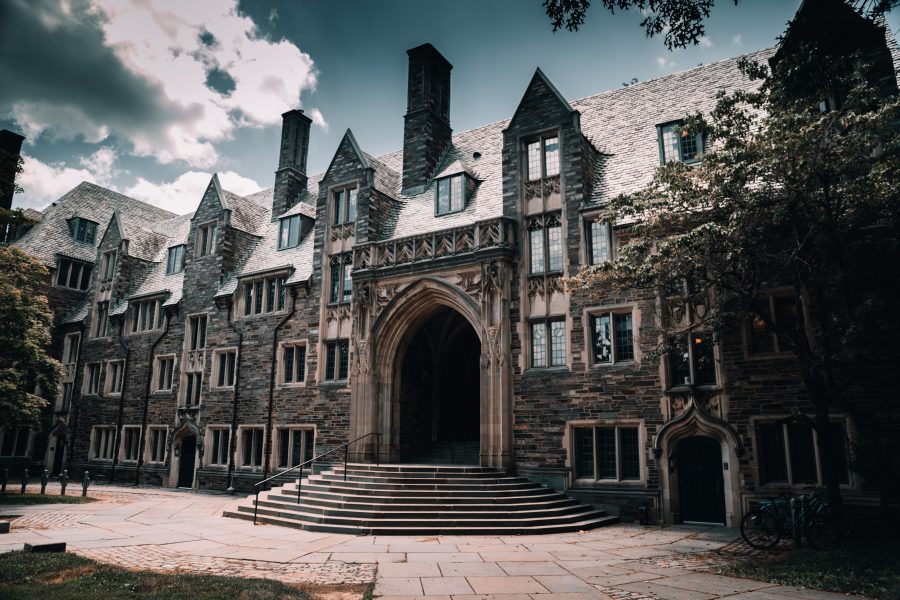By — Njeri Jackson
Junior year: the year where college and future plans are pushed towards you. It’s the year where prepping for after high school happens. As I approach the end of my junior year, and the start of my college application process this summer, my view of college has completely changed. I have been anticipating college since before I stepped foot in kindergarten and now that it’s actually starting to happen I’m thrilled. I’ve been touring colleges, researching, and practicing for big exams like the SAT and ACT. It’s all a bit unreal, but I’m starting to realize the almost toxic atmosphere surrounding college and applications, and the major effects that it can have on students.
The application process of colleges has also become incredibly skewed. Now that colleges aren’t all about grades, it has shifted to extracurricular activities, volunteering, and decent grades and test scores. Basically, they want a well-rounded student. But this isn’t as good as it sounds. Most colleges still want good grades and test scores, and there is so much pressure around students acing these standardized tests and classes in a rigid school system that deems being smart as doing well in the core classes of math, science, english, and history as if smarts can be defined to just these four classes.
To make matters worse, if a student doesn’t have good grades in these classes, they have to make it up with extracurriculars and things that make them stand out. This is toxic because it literally pushes kids to sometimes just do extra stuff because it looks good on their application instead of just doing the things they love.
In addition to this, colleges want to see a student advance in whatever their extracurricular is or stay dedicated to it. Not all students know what their passion is by then. Students are in high school, it seems to be expected that everyone knows what they love when everyone doesn’t. Yet, if a student keeps switching clubs to try to figure out their passion, they are deemed as not as strong applicants against those already knowing their passion.
Not all students can advance in extracurriculars. If a student was in sports for example, and there was a position to be the captain, there are limited people that can get in it. If there are limited opportunities, there is no way that everyone has the ability to get there. This does not mean that a student isn’t doing anything, it’s just sometimes they don’t make it.
With this, there is the fact that an individual is deemed “better” because they happen to have a talent for something while the other person is just doing it for fun. This doesn’t make the person doing it for fun any less than the talented person. The other thing about extracurriculars is the presumption and the overall process is it wants students to balance all of this. Not everyone can manage getting good grades and doing bunches of extracurriculars.
Different types of colleges should also be considered an issue. There are just so many toxic things wrapped up into it. It is literally like all these colleges are making a judgement towards students and saying “this person is better than that one” based on what is on their application. Ivy League schools are a really good example of this. The acceptance rate at those schools are pretty much downwards of 10% and there are so many students that applied and they select between those students.
Some people are just desperate to get into the school, or parents might want it too. All to the point that they might do drastic things to get in. Bribery, forgery, and connections can be used to get into some of these schools. There was a huge case called Operation Varsity Blues, that exposed a large number of people that cheated their way into these Ivy League schools by lying on applications, photoshopping pictures, etc.
The cost of college is also a nightmare. “Better schools” are always so much more expensive, and even though there is financial aid available, some families just can’t afford it.This is such a sad thing about colleges because there are many perfectly-capable students that are unable to go to these schools because of finances. I myself have thought about going to an Ivy League school, but it just seems like such a stretch because it is just so expensive. Extracurricular can also be considered a cost because some people can not afford to sign their kids up for sports or other extracurriculars and that puts them at an immediate disadvantage.
Parents are also contributing to this problem. The pressure from parents can be so destructive to their children. Don’t get me wrong, it’s great if the parent is pushing their kid to try their hardest, but it crosses the line when the parent quite literally deems great grades and good college as what’s most important like nothing else can possibly, or should be, as important as these things. This can be incredibly damaging for young people.
I for one have felt the effects of this with virtually no social life outside of school; my mental health was at an all time low until about a few months ago, I have almost no freedom to do things outside of my house, and a long list of rules that bar me from doing much of anything. I feel that I have missed out any normal type of childhood.
In addition, parents determine how much college is going to cost as well as influencing where their child is going. Some parents bar their children from certain colleges and try to push their kid to go to a particular place. Yes that’s reasonable, but it is the child’s decision to make because it is THEIR future. Financial aid is mostly determined by income of families as well as the FAFSA form, and it doesn’t really account for many unique situations. It literally presumes that the parents are paying for college, and if they’re in a certain income bracket they can or can’t afford it.
This is a huge problem because some parents aren’t paying for their kids’ college, and their income is about to affect how much the kid is going to pay for school. If a student’s parents were making around $100,000 and they weren’t paying for their child’s college they just put them in heavy debt because it is presumed that if a parent makes a lot they will help pay for college. Parents’ financial decisions are literally determining their child’s whole future and that is a scary thing to put faith in something that is not in one’s control.
Even though there are all these factors, if college is important to a student, they should still go for it. The toxicity of it is a problem, but there are numerous benefits to going to college. Even if a student chooses to not go, there are many other options such as apprenticeship, military, or just going straight to the job force to name a few. All of this really makes you wonder…how did we get here? And how do we fix higher education? It seems to me that we cannot continue with the way things are currently done, or we risk damaging countless young people in ways that will have lasting effects.






